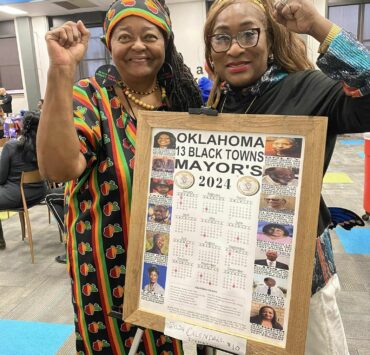
LOCAL & STATE
Kimberly Marsh
Photos by Sam Levrault Media/The Oklahoma Eagle/Greenwood Women’s Business Center
When the Greenwood Women’s Business Center opened two years ago, it promised to provide women in Tulsa – particularly Black women and other women of color – a hand in launching and growing their businesses. Last week, at its second anniversary gathering, the InnovateHER Summit, the Center gave the two hundred attendees a couple of big things to celebrate.
The first was the remarkable growth of women-owned businesses nationally, particularly over the past four years.
From 2019 to 2023, women-owned businesses’ growth rate outpaced the rate of men’s 94.3% for number of firms, 252.8% for employment, and 82.0% for revenue, according to the 2024 Wells Fargo Impact of Women-owned Businesses Report.
Women-owned businesses make up nearly 40 percent of all businesses – more than 14 million, employing 12.2 million workers and generating $2.7 trillion in revenue. These figures were announced to the crowd of 200 summit attendees held at the Doubletree Warren Hotel on March 13.
The second cause for celebrating was the success of many of the attendees at the summit. During a ceremony at the gathering, the organizers presented awards to five women in business in Tulsa. (See story pp.)
With the help of the U.S. Black Chambers of Commerce, the Greenwood Women’s Business Center opened on March 16, 2022. The Chamber has focused on assisting women entrepreneurs rise by establishing women’s business centers around the country to give women the free resources they need to be successful, whether they are bootstrapping or have capital to invest.
Corrie Kimbril, business banker with Bank of Oklahoma, and a Summit sponsor, told the meeting that around 849 new businesses are started by women every day. She quoted reports of Latina and Black women entrepreneurs emerging more robust since the COVID-19 pandemic, with 20% growth.
And yet, Kimbril noted, women also lack access to crucial federal programs, including contracting and procurement programs. According to the most recent data from the Small Business Administration (SBA), women-owned businesses netted only 4.63% of all federal contracting dollars in fiscal year 2022, just shy of the government’s long-term 5% goal. While it is slightly improved from the previous year, the 5% goal has been met only twice since it was established over 20 years ago.
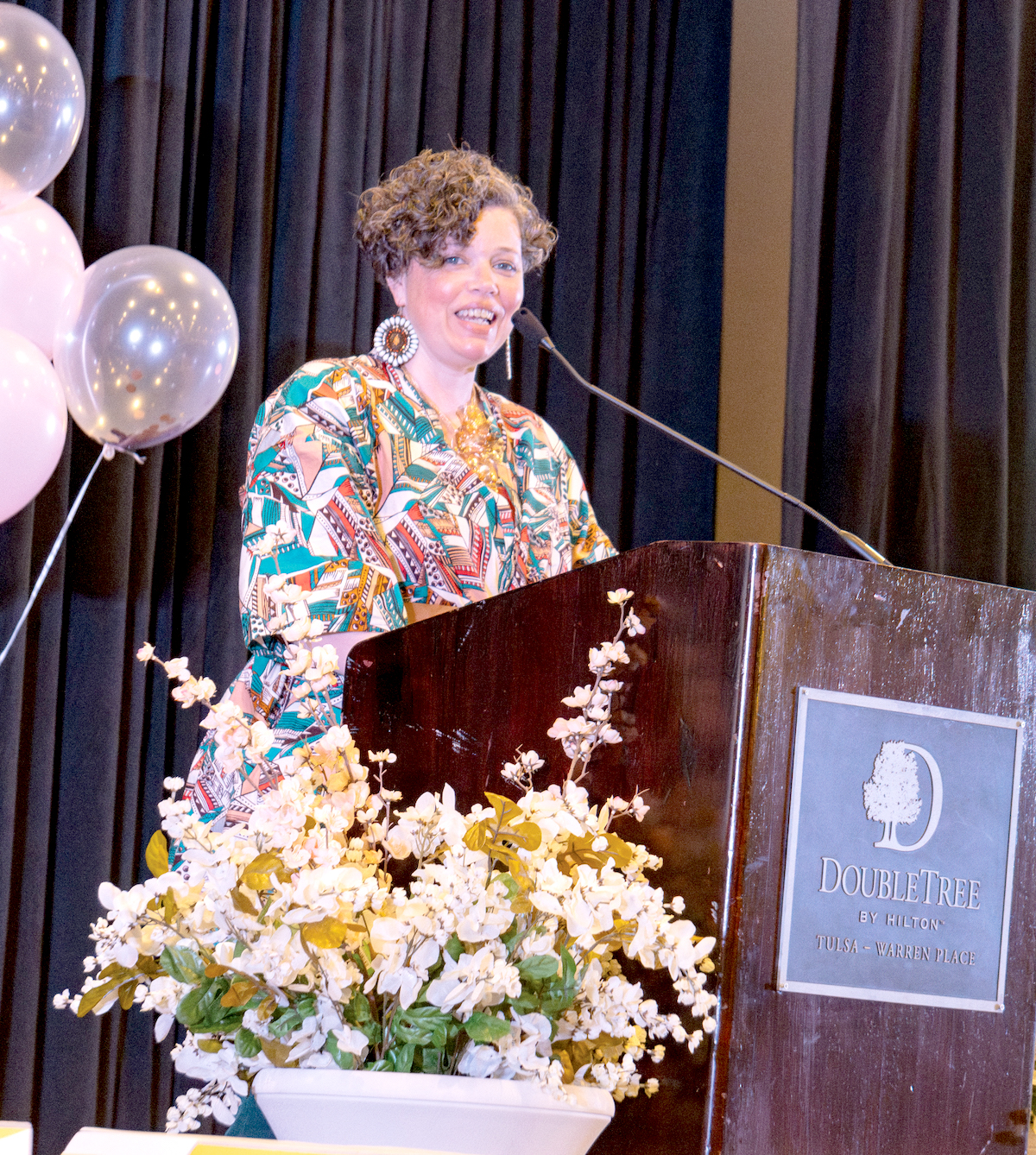
New Opportunities for Women
Federal contracts are an area where businesswomen can increase their foothold. Alisa Joseph, vice president of programs for the U.S. Black Chambers of Commerce, said during a session at the summit that there are emerging opportunities in government contracts.
“I think it is that space where we see some new opportunities developing. Now that things have kind of opened since the pandemic, there’s obviously spaces for us to hold and convene people like we’re doing today,” Joseph said. She added that her organization is working with communities to get more information to entrepreneurs on how to break into bidding for government contracts, as male-owned businesses and corporations have done for decades.
“Our summit today was about innovation. We’re going to continue to innovate and figure out new ways to attract people to do the work that impacts small businesses.”
The annual summit, a free offering, is a way to attract those women across diversity and age and professional and business experience, Joseph said.
“One is we needed people to know who we were, and the summit was a great way of us being able to do that. We envision that as being a jumpstart for some Sister Circle groups that we want to put together, where we can bring more women together to be in a close setting, be able to talk about their issues, mentor and talk with one another.”
Some topics emerged from the four keynote speakers that developed into general themes for the day. The Summit’s mistress of ceremonies and Build in Tulsa Managing Director, Ashli Sims, said the main themes included shutting down personal social media time to curating social feeds to ensure the content you see is meaningful and valuable. The speakers discussed need versus want and how innovative problem-solving comes from having less.
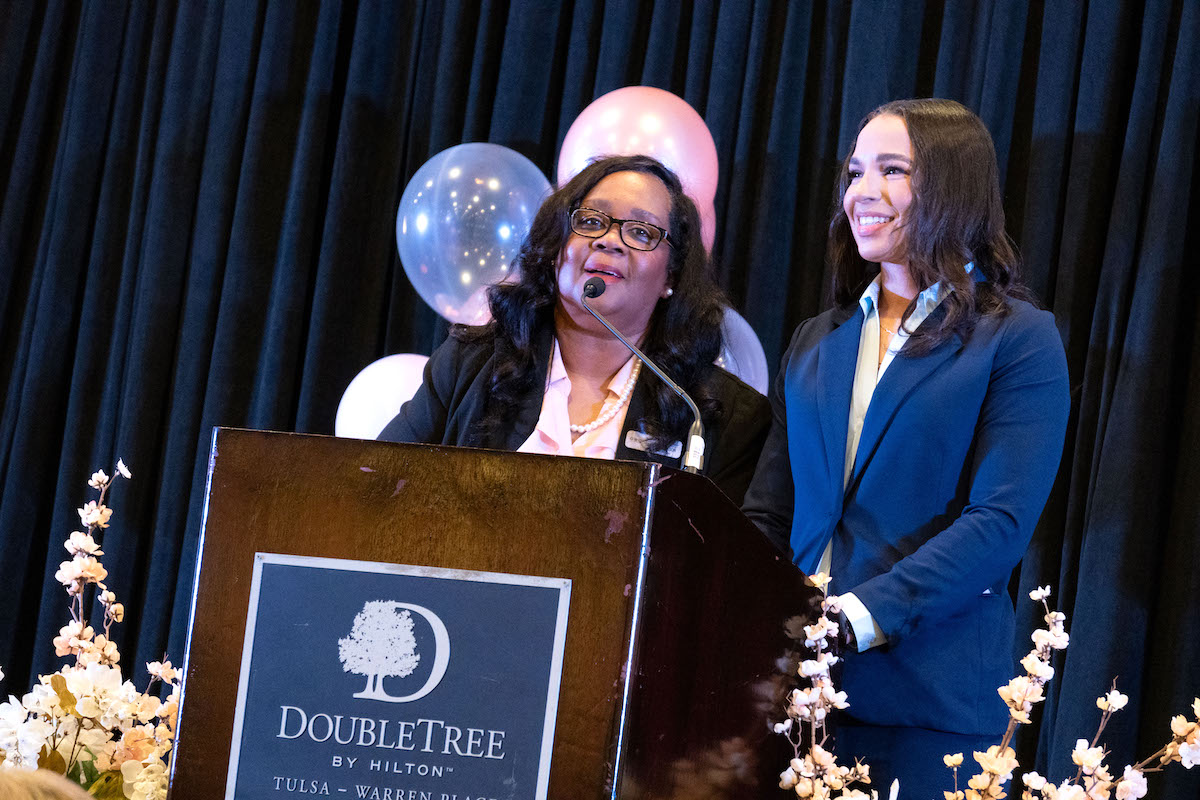
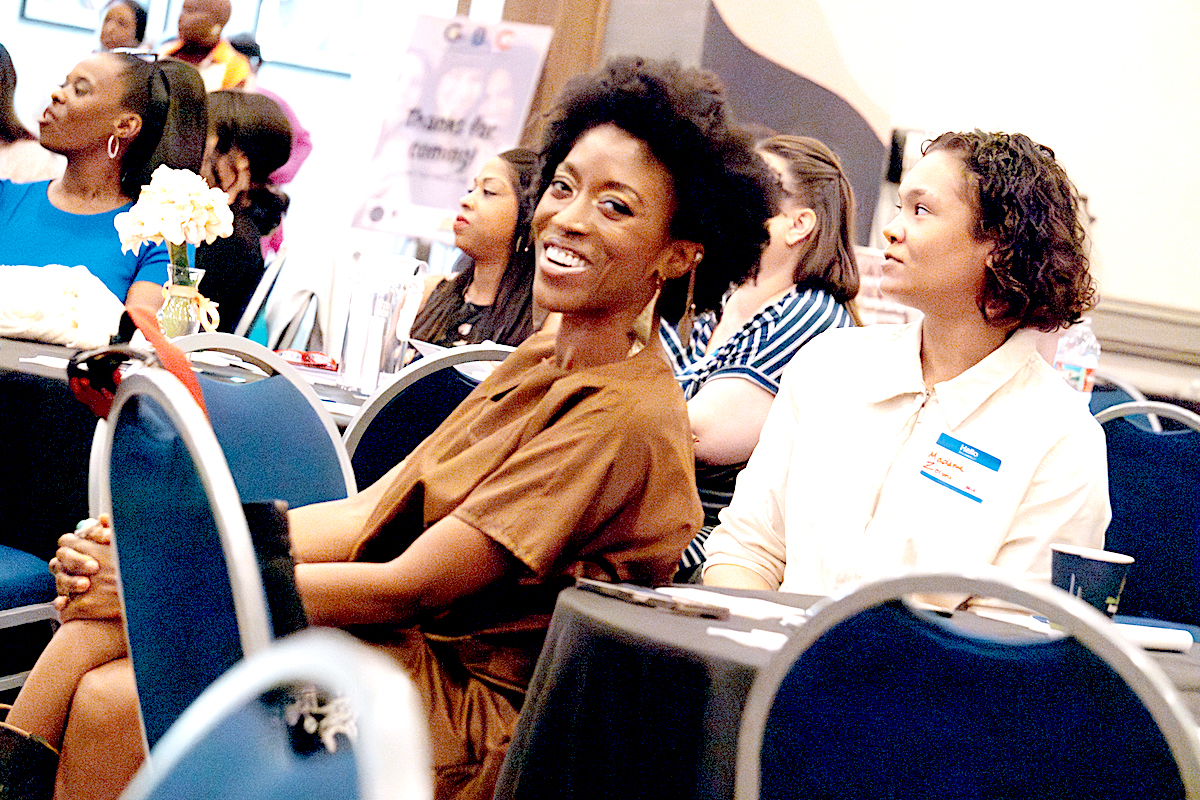
Creativity is an equalizer
Creative thinking is the equalizer for people who do not come from a place of many resources or feel that they have been marginalized in some way during their life, said Nicole Barton, photographer and publisher of She Is Tulsa Magazine. Barton shared her beliefs and approach to developing creativity through a story.
“My belief is that people who come from scarcity or may have obstacles to overcome are intuitively more creative than the average person. I don’t think there’s anything more creative than having to make something out of nothing,” she said.
“Think if you had been in a circumstance where you have had to dig things out of the cupboard or the back of the fridge and look at what you’ve had, and make a meal out of it because that’s what you had; or something breaks, and you don’t have the money to replace it so maybe you Frankenstein a few things together, and it works, and you keep on rolling. To me, this is how you exercise that (creative) muscle. And that’s what it really is. It’s just practicing overcoming problems in ways that might be unexpected, or unique. And that’s really the heart of creativity.”
Barton told the participants about the unexpected things she had done in her business. She also shared some changes that shifted her mindset to benefit the business. While scarcity is not the place anyone wants to be all the time, there is a time when it can enhance your creativity. Barton said it is essential not to take the actions that you might think are roadblocks to success.
“If you can excel with a little bit, work with what you have to the absolute bottom of the bucket, then when you upgrade to wherever that next level, you are going to run circles around other people because you already did so much,” she said.
“Before you spend the money on the thing that you think you need, I will challenge you to figure out if you can do it with what you have first,” she added. She explained that it is harder to be creative when overwhelmed “by all these things now that you put in front of yourself.”
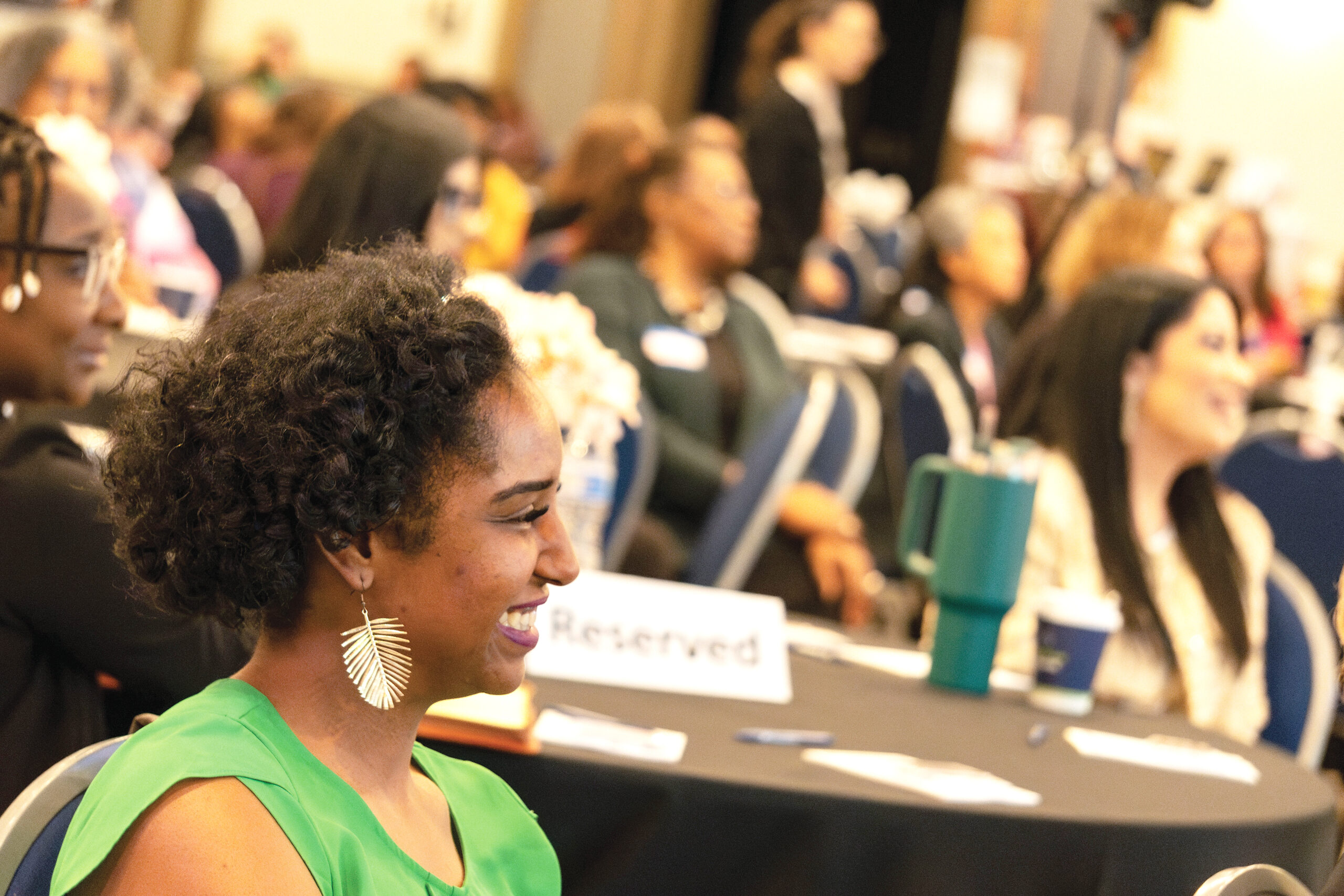
Be Your Goal Concierge
As founder of Your Goal Concierge, Erica Kesse has created a sanctuary and resource hub for matriarchs and mom CEOs. Kesse spoke about overcoming many challenges that left her feeling “done” after years of being under her mother’s watch, nearly being kidnapped, and losing a baby. She did it by finding new gifts – knowledge, power, and inspiration – to renew her spirit and efforts.
Building around her stories, Kesse encouraged all participants to not only think about but also bask in the way they became innovators, then recognize that the path to being harmonious is to triage yourself every day, ask yourself those tough questions, and be honest with yourself, and foster relationships.
“You will not be anywhere without your relationships. Relationships are your life, your lifeline, and your power. You must make sure you’re connected.”
The Six Cs of Business
Keynote speaker Aryis T. Scales, senior vice president of Social Responsibility & Global Initiatives for Nareit, has been a champion for women entrepreneurs and communities of color for nearly two decades. Her mission-oriented approach to addressing social inequities led to transformative public-private partnerships with numerous local brands.
It also helped her develop innovative policies and initiatives through which she secured over $60 million in funding and administered more than $250 million in grants and subsidies. Scales shared her approach to addressing social inequities and obtaining funding for initiatives.
Scales outlined the six “Cs” she considers essential to being “capital ready.”
- Commitment – “I had to have a real honest conversation with myself just recently…Do you really want to have a side hustle? Do you want to have this business?”
- Competency – “The best way to increase your competency is to know your craft – you have to be able to continuously improve your craft.”
- Compelling – “If you can identify things that are on your plate that you can transition off so that you can find those peak hours to do the research that I need to cultivate a relationship with XYZ…when you get in front of them, you can position yourself to have the conversation around what it is that you do.”
- Cultivation – “There’s the cultivation of relationships, there’s the cultivation of yourself as a leader, and there’s the cultivation that you put into making sure that you have your house in order, your ducks in a row.”
- Completing – “You have to complete these applications, you have to complete the things that you say you will do when you have conversations, you have to complete deliverables on services and projects so you can speak back and say, ‘Here are the receipts.'”
- Competing – “I often get blown away by how many opportunities will sometimes (be) put out for business owners to respond to from a financial standpoint…and the response rate is so low.”
Being “capital-ready” is also about getting right about money, Scales explained. “As children, we often hear our parents talking about the lack of money,” she said. “It has a lasting psychological impact and shapes our relationship with money as adults.”
Scales works with entrepreneurs, nonprofit leaders, and women who are what she calls Henri’s – “High Earning, Not Getting Rich.” Scales said it’s crucial for a woman entrepreneur to work to break out of the scarcity mindset, and that is done by asking questions, getting information, doing research, and building knowledge.
“How do you take this money so that we’re not operating from a place of scarcity? But to a place where we feel comfortable, where we feel knowledgeable…And that’s what I’m talking about, the minutia that we don’t necessarily want to do. We’re so busy being in our business that we’re not working on our business. And it’s, it’s a catch-22.”
“But it’s not because oftentimes the time exists,” Scales said. “It’s a matter of putting down the social media, turning off Netflix, and focusing on using time the best way you can to hit the six “Cs” and succeed in business.”









